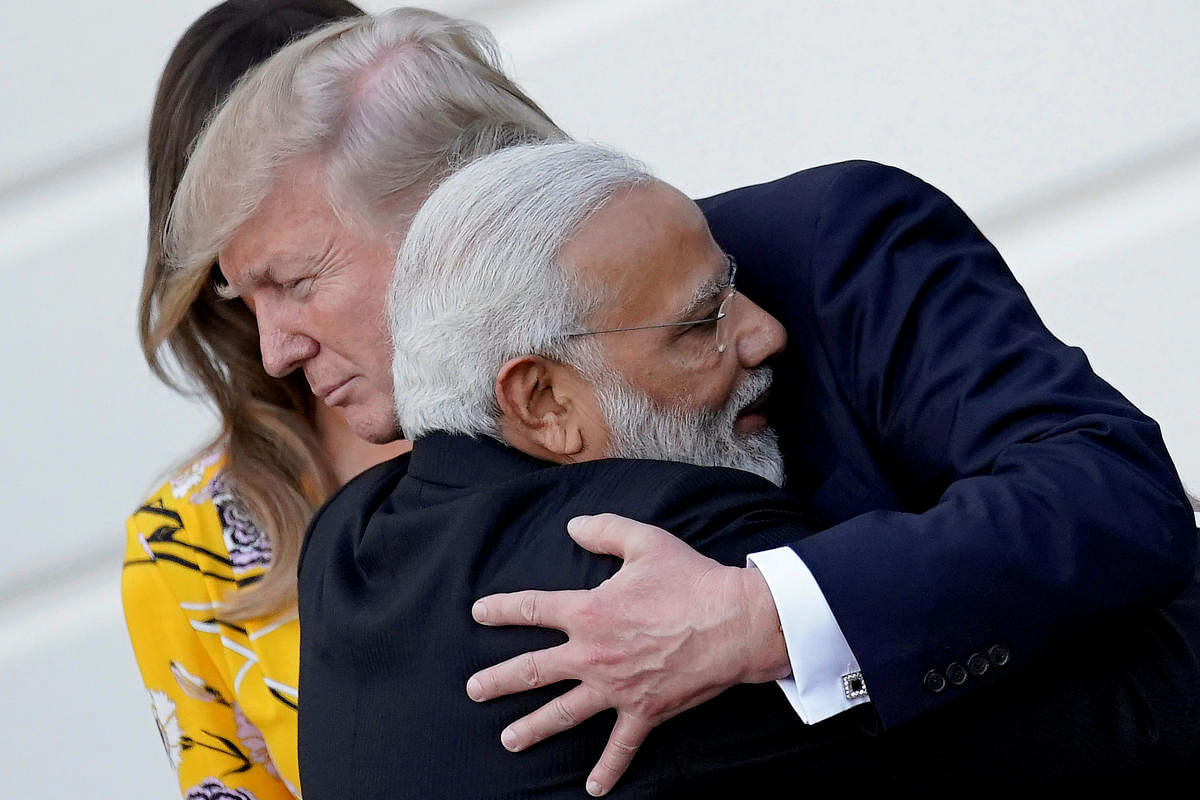
A proposed meeting between Prime Minister Narendra Modi and US President Donald Trump in New York has come under a shadow after the latter claimed that Modi had asked him to mediate between India and Pakistan and help resolve the Kashmir issue.
Indian and US diplomats have been discussing the possibilities of a meeting between Modi and Trump on the sidelines of the United Nations General Assembly (UNGA) in New York in September. New Delhi has been expecting that such a meeting between the two leaders would add momentum to efforts to resolve the trade disputes which have emerged as a major irritant in India-US relations.
But the recent claim by Trump that Modi requested him to mediate between India and Pakistan on Kashmir has now cast a shadow not only over the series of key engagements that New Delhi and Washington DC have been trying to line up for the coming weeks and month, but also over the proposed meeting between the two in New York.
Sources in New Delhi said that Trump's claim had indeed come as a “rude shock” to the efforts being made by two sides on narrowing differences between India and the US on issues related to bilateral trade as well as the peace process the American government had been pursuing with Taliban in Afghanistan.
Soon after Trump made the remark during a joint news conference with Pakistan Prime Minister Imran Khan at White House, Modi government in New Delhi came under attack from the Opposition parties, both inside and outside Parliament. The government refuted Trump's claim, with External Affairs Minister S Jaishankar and Defence Minister Rajnath Singh reiterating in Parliament that the prime minister had not made any such request when he had met the US president on the sidelines of the G20 summit at Osaka in Japan last month.
A source in New Delhi pointed out that the American president's remark had breached “a red line” as it had gone against New Delhi's long-standing position that the Shimla Agreement in 1972 signed by Indira Gandhi and Zulfikar Ali Bhutto, the then prime ministers of India and Pakistan, had left no scope for any third party involvement in the process to resolve the “outstanding issues” between the two nations.
The principle of the Shimla Agreement had again been reaffirmed by the Lahore Declaration issued by the then prime minister A B Vajpayee and his Pakistani counterpart Nawaz Sharif in 1999.
Another source aware of India-US engagements said that Modi and Trump might still hold a meeting on the sidelines of the UNGA, but it might not yield as much as both the sides wanted it to. “The level of trust and personal chemistry between the leaders are always important for the success of such meetings,” he told DH on Wednesday.
Trump had ridiculed Modi at least on two occasions earlier. He had mocked the prime minister in February 2018, calling him “a fantastic gentleman” before complaining about high customs duty imposed on Harley Davidson motorcycles imported from the US to India. He had also taken a jibe at Modi on India's decision to limit its role in war-ravaged Afghanistan to infrastructure development.
Apart from the proposed meeting between Modi and Trump in New York, India and the US have also working on finalising several other high-level engagements in the coming months.
Jaishankar and Singh are likely to visit Washington DC to hold the annual India-US 2+2 dialogue with US Secretary of State Mike Pompeo and Secretary of Defence Mark Esper. Commerce Minister Piyush Goyal is also likely to visit Washignton DC for meetings with US Commerce Secretary Wilbur Ross and US Trade Representative Robert Lighthizer.
